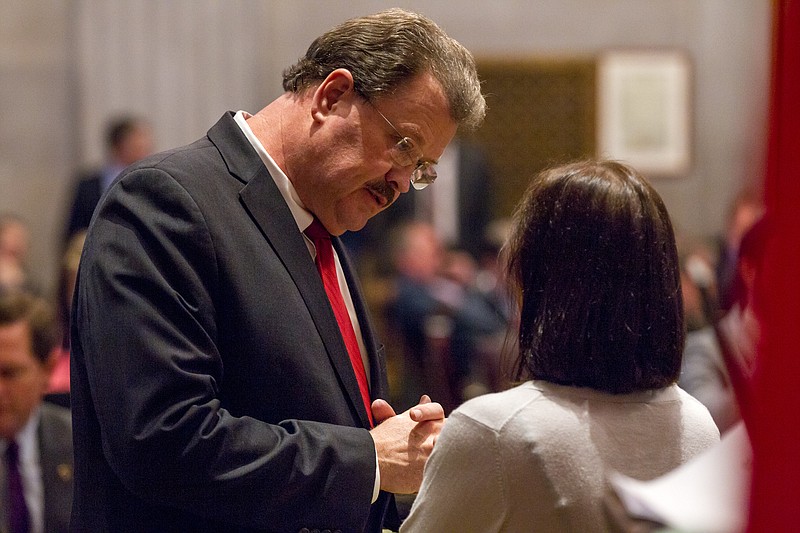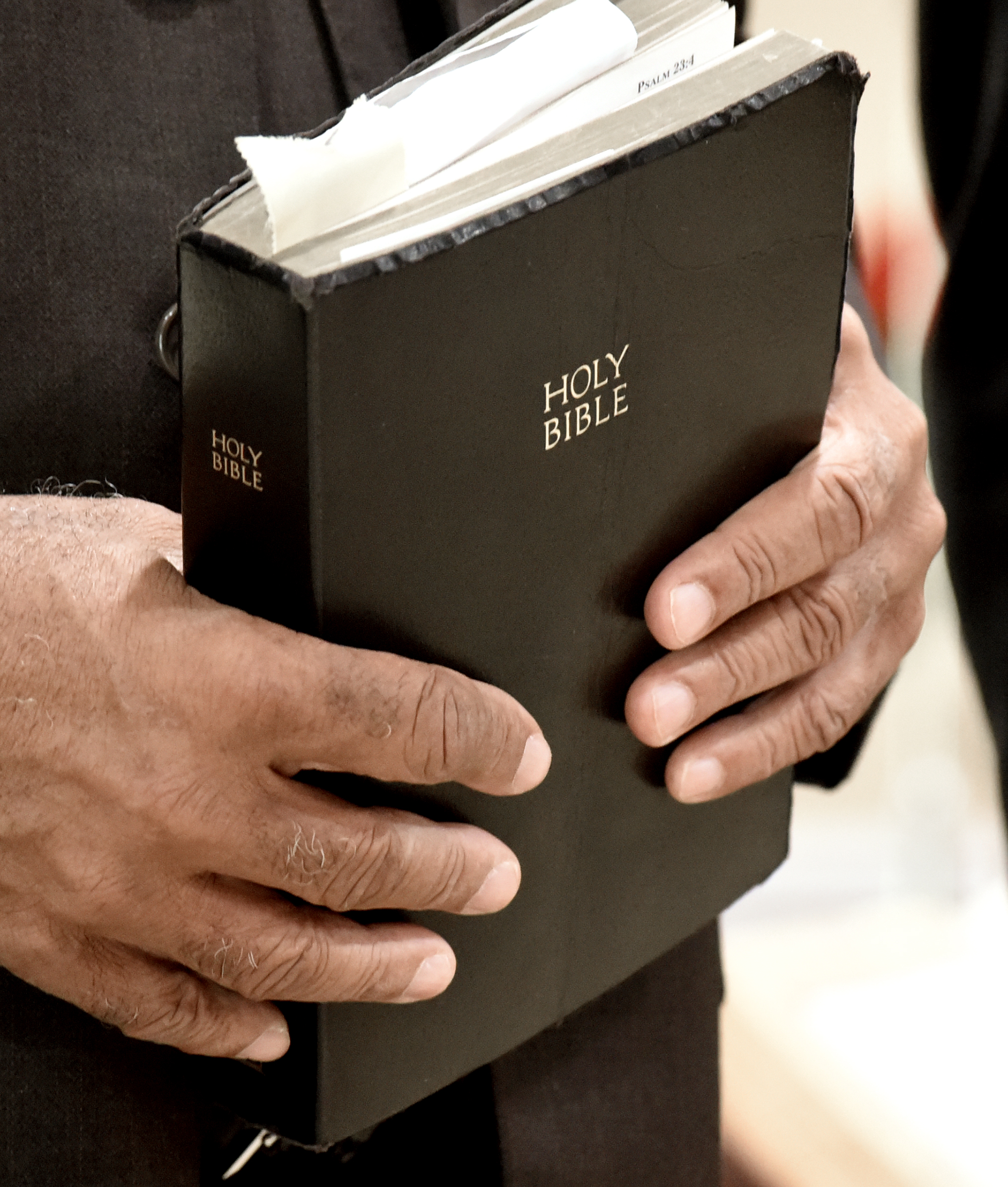NASHVILLE - A Tennessee resolution that would designate the Bible as the official state book cleared the House on Monday night as the sponsor and another member who opposed the measure - both preachers - squared off quoting from the book to make their arguments for and against.
House Joint Resolution 150 passed 55-28. It now goes to the Senate, where Lt. Gov. Randy McNally, R-Oak Ridge, the Senate speaker, has voiced opposition to the measure - which House sponsor Jerry Sexton, R-Bean Station, has introduced in two previous legislatures.
Asked what Republican Gov. Bill Lee's position on the measure is, the governor's communications director, Laine Arnold, said, "We'll keep an eye on it as it moves on the Senate side."
It's the third time that Sexton, a part-time minister, has brought the measure, introducing it the first two times as a bill. In 2016, then-Gov. Bill Haslam, a Republican, vetoed the measure, citing a 2015 state attorney general's opinion stating the bill violated the Establishment Clause of the U.S. Constitution as well as Article I, Section 3 of the Tennessee Constitution. Haslam said his personal view was the bill "trivializes the Bible," which he considered a sacred text.
Sexton's effort to override Haslam's veto fizzled. He introduced another bill in the following General Assembly but didn't push it. This year, Sexton introduced it as House Joint Resolution 150.
The resolution cites the Bible's "great historical and cultural significance in the state of Tennessee as a record of the history of Tennessee families that predates some modern vital statistical records."
Sexton noted in a floor speech that the Bible outsells "every other book" and notes Tennessee has been a center of Bible publishing.
"It's a book that's been very important to me my whole life," said Sexton, also a businessman. "I'm glad that I've had the opportunity to stand in the pulpit and open its pages and preach what I call the Gospel. And I'm sure many of you do."
Rep. Johnny Shaw, D-Bolivar, a minister and businessman, said he had been "trying to find some scripture that would allow us to take God's word, to bring it down to the level of a state. And I just can't find it."
Quoting Jesus, Shaw said, "If you continue in my word, then ye are my disciple in deed." He said he sees all the authority "gives to us is to be able to represent in character, in personality, in speech and in love, he gives us the authority to represent him that way. But he does not give us the authority to say that my word should be here or it should be there. It's only in us, wherever we are."
Sexton countered, "I'll answer that question if you'll tell me where separation of [church and] state is in any of our founding documents in the United States government and in any of our founding fathers that have used that to found this nation and our constitution. I'll be glad to answer that when you show me where that is in our founding documents."
Shaw also raised concerns that Sexton's efforts were effectively "shoving" scripture down peoples' "throats." Replied Sexton: "I never have, and I never would, shove it."
The First Amendment to the U.S. Constitution begins, "Congress shall make no law respecting an establishment of religion." Thomas Jefferson, one of the founders of the nation, said in an 1802 letter to the Danbury Baptist Association that the clause was intended to build a "wall of separation between the church and state."
After Shaw later said what Sexton was asking would "embarrass us," Sexton replied, "I don't want you to be embarrassed," adding he wanted to "uphold the standards of God or his son, my beloved Savior."
The measure now goes to the Senate. McNally said of Sexton's resolution that "I do think it trivializes [the Bible] and places it along with other symbols that the state has like the salamander and the limestone rock and mockingbird, things like that."
McNally said that because the measure is "substantive" and not merely procedural, it will go through the committee process. Asked if he expects it will reach the Senate floor for a final vote, he said, "I think it's really up to the committees that it goes through."
Contact Andy Sher at asher@timesfreepress.com or 615-255-0550. Follow him on Twitter @AndySher1.


